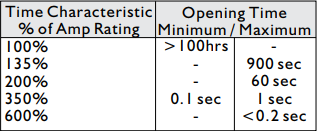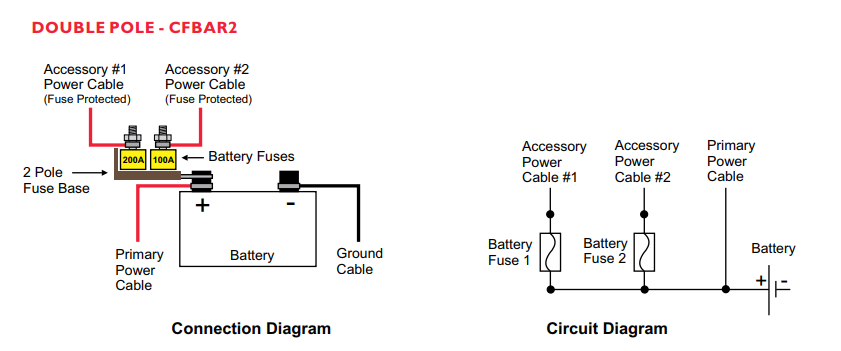My question is related to a 300A rated dual fuse holder of the following type which is to attach to the positive terminal of an AGM battery:
If 2 x 100A fuses were to be mounted onto this fuse holder, would both fuses blow when the total load exceeds 100A or theoretically could 99A pass through each fuse (198A total load) without either fuse blowing?
Fuse specifications:
Fuse holder specifications:



